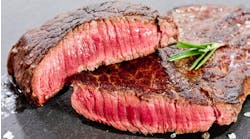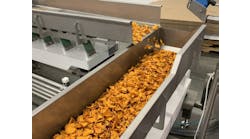As debate began on the 2007 Farm Bill, Dick Bond, Tyson Foods Inc.s president and CEO, warned that boosting U.S. ethanol production would mean higher food prices, both domestically and across the globe.
Corn prices nearly doubled last year, due in part by the diversion of some corn to make ethanol. President Bushs state of the union address called for a five-fold rise in renewable fuel production over the next decade. And while the higher corn costs translate into higher feed costs for animal protein companies such as Tyson, they also greatly impact companies such as Kraft, General Mills and Kellogg, which use corn as an ingredient.
In fact, at the Consumer Analysts Group of New York February meetings, executives from Hormel Foods, Campbell Soup and J.M. Smucker all said they would raise prices to cover increased commodity costs.
This is not just a U.S. phenomenon, Bond was quoted in the Financial Times, with animal-feed prices being reset throughout the world to reflect higher demand. If left unaddressed, the bigger long-term issue will be the availability of U.S. and global grain for protein and other foods.
We fully support efforts toward renewable energy; however, as the food-versus-fuel debate unfolds, we must carefully consider the negative and unintended consequences of over-using grains, Bond reportedly said.
On the other hand, ethanol producers such as Archer Daniels Midland insist better technology will boost corn yields to meet the demands for both food and ethanol.

